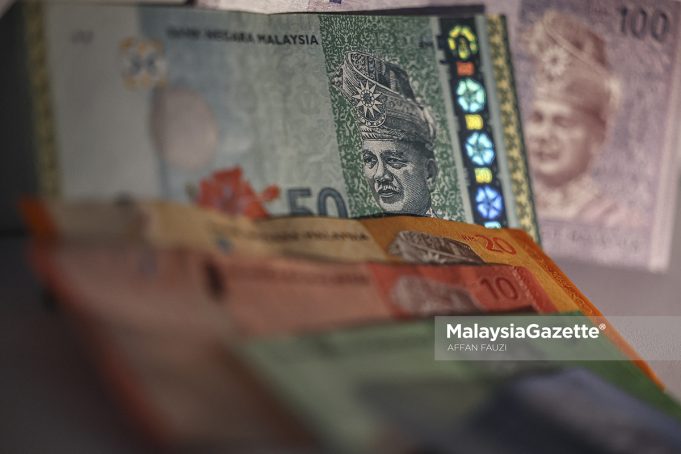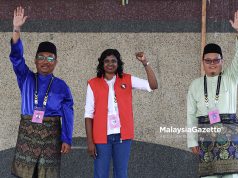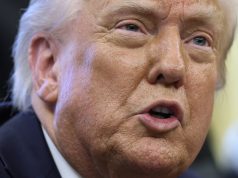ALMOST half of the world’s wealth or US$213 trillion, is held by just 1.5% of the global adult population. In contrast, those with less than US$10,000 hold just 0.5% of global wealth but make up 39.5%. Those between US$10,000 and US$100,000, account for 12.6% of the wealth and 42.7% of adults. According to the 2024 UBS Global Wealth Report, the 1.5% comprise of about 58 million US dollar millionaires. Wealth is defined as the value of financial assets and real assets minus debts.
The US hosts 38% of the world’s millionaires, Western Europe 28% and China 10%. In numbers, US has 21.95 million individuals, China comes at a distant second 6.01 million followed by the United Kingdom (3.06 million). At the G20 meeting in Brazil, the US Treasury Secretary said, keep global tax negotiations at OECD, not United Nations (UN). She cited the UN doesn’t have the technical expertise and its majority vote structure is not suited to complex tax negotiations where countries need to all agree on terms that support their interests. She added, there may be some tax topics that would be appropriate for the UN, & ‘but not this’.
Brazil wants to add a third & ‘pillar’ to the global tax deal agreed by some 140 countries by way of a common levy on ultra-wealthy individuals. Pillar 1 is a reallocation of taxing rights on large, multinational corporations and Pillar 2, a 15% corporate minimum tax. It morphed into a declaration by G20 countries to ensure that the ultra-rich are effectively taxed and to seek a balance between national sovereignty and more cooperation on tax
avoidance.
Earlier, in June 2024, wealthy countries pushed back as UN moves ahead with a global tax plan. There were clashes over procedural and substantive issues. Wealthy countries opposed a legally binding UN tax convention and may seek to water it down. Experts warned – risking the new convention becoming as “inconsequential as the OECD, that had set international tax policy behind closed doors. Disagreements emerged over the committee’s decision-making mechanism. Developing countries favored voting by a simple majority if no consensus emerges but wealthy countries argued for consensus-only, allowing a minority of states to effectively wield ‘veto power’.
The second round of talks is scheduled to start from July 29. We really need a truly democratic process to set standards on taxing the ultra-rich and not bow to the demands and interests of the OECD. A global billionaire tax could generate US$250 billion annually, researchers say (Global Tax Evasion Report). The world’s richest people are using shell
companies to reduce tax payment. Billionaires worldwide have effective personal tax rates of between 0% and 0.5%.
By taxing 2,700 billionaires just 2% of their wealth annually, researchers estimated that countries could raise the revenue needed to respond to global crises, from soaring income inequality to climate change. Zakat, one of the five pillars of Islam, provides a wealth tax of 2.5% to be donated to the poor and needy. Tax havens play a key role in helping billionaires and multinational corporations avoid taxes. In 2022, multinationals continued to book about 35% of foreign profits in tax havens, totaling an estimated US$1 trillion
globally.
The Paradise Papers and Luxembourg Leaks have highlighted corporate tax evasion by some of the world’s biggest companies. The Panama Papers leak and government probes into taxpayers’ offshore assets have also helped lift the veil on the offshore financial system. In 2021, a landmark global tax agreement included a commitment by
governments to set a minimum tax rate of 15% for multinationals. However, there are loopholes. Example, companies can effectively sidestep the tax by demonstrating economic activity in low-tax countries, which both incentivises firms to move production to tax havens and encourages tax havens to keep tax rates low. A separate report by the Tax Justice Network advocacy group estimated that tax havens could cost countries US$4.7 trillion in tax revenue over the next decade.
While the banking system effectively tracks financial assets, other assets such as luxury property, private art collections and superyachts can pass under the radar undetected and untaxed. “Not taxing multinational corporations has provided a flow of wealth to a
few people enriching a handful of individuals. Money that would have gone to the people has now gone to rich individuals. We now have a responsibility to get it back” – Joseph Stiglitz.
Glaring tax disparities also undermine democracy by eroding trust in institutions.
The Madani government is doing its best to attract foreign investments but do keep in mind on this development and the need to finance the country’s largest-ever budget.
We need to bring the winds of genuine democracy and human rights to international tax negotiations and provide a breath of fresh air to everyone. What say you…
Saleh Mohammed

















